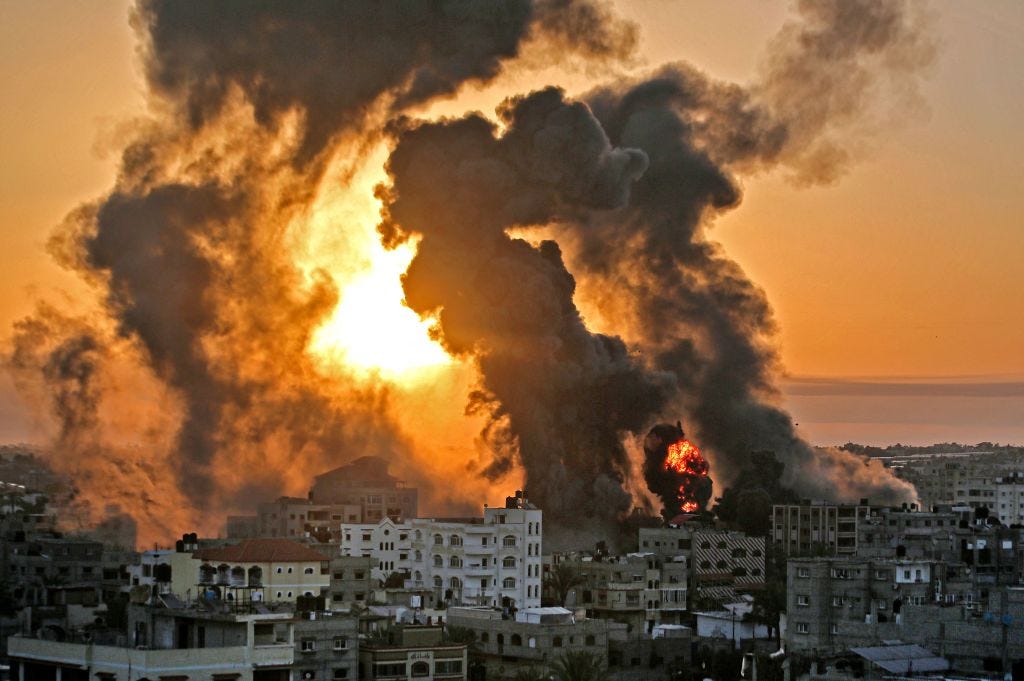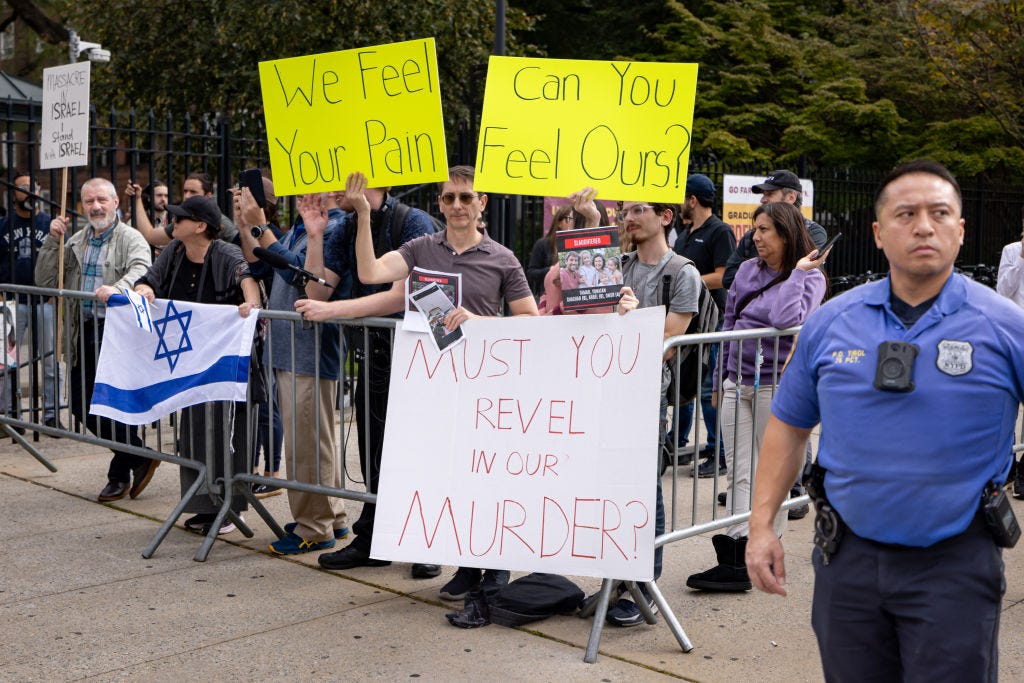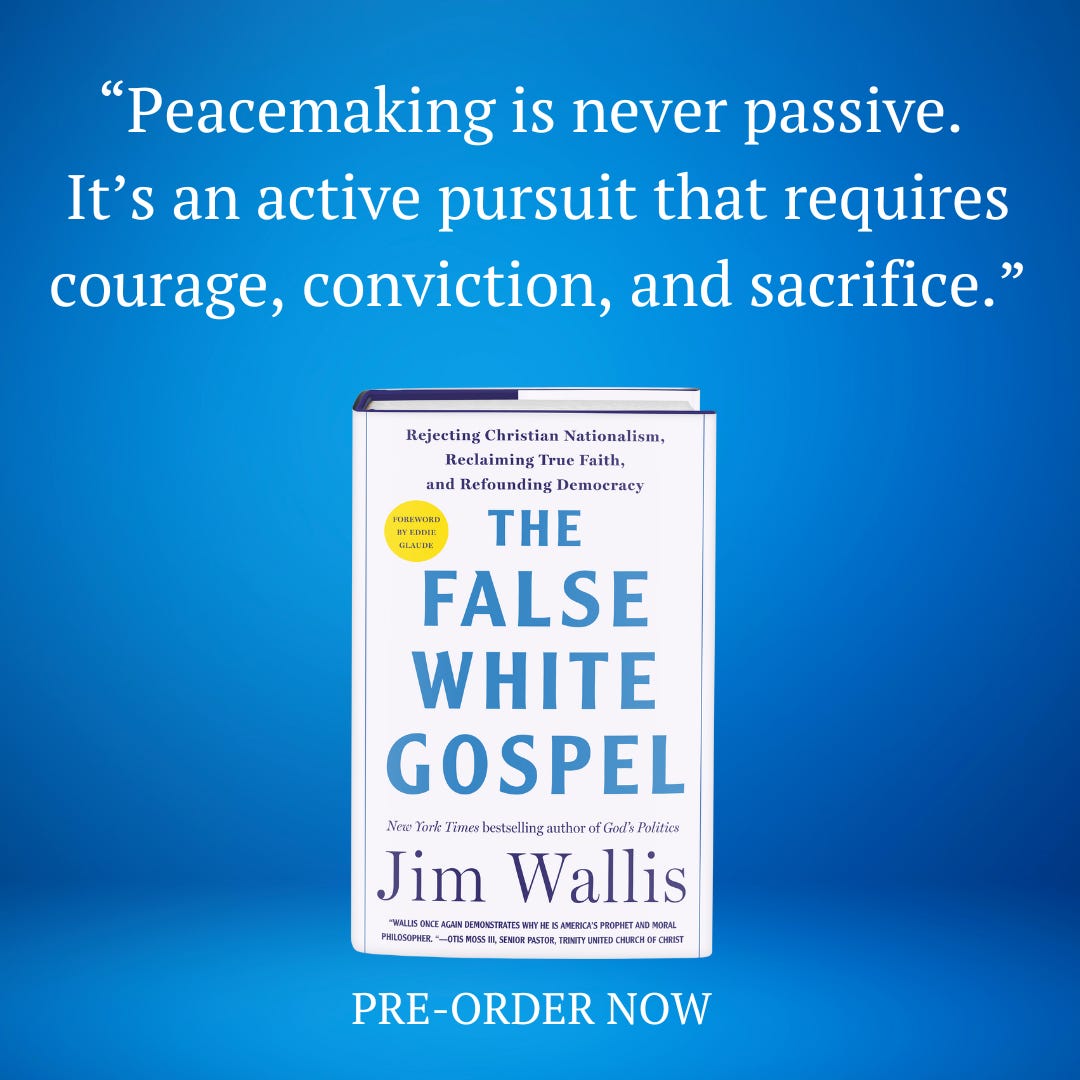How to Be Peacemakers During a Time of Constant Combat
Hope is a religious obligation that all people of faith must offer to a warring world.
Jesus said, “Blessed are the peacemakers, for they shall be called the children of God.”
But how do we do that? How do we become peacemakers when everything seems to be coming apart – “unglued,” as one person said to me. How do we help stop violence and act for the preservation of life?
Many of us are struggling with what it will take to avert more human suffering in the Holy Land. Here in the United States, we’re witnessing deep and increasing divisions, even among old friends and allies. Relationships are “shattered,” I heard during another conversation.
Peacemaking always includes both words and deeds, but we are in a time when words don’t seem to suffice and deeds look difficult to carry out.
Jesus didn’t ask us to be peace lovers, which is easy and meaningless and quickly withdraws from conflict; or to be peacekeepers who accept an unjust status quo. He calls us to be peacemakers, which means conflict-resolvers.
At the core of the Israel-Hamas war is dehumanization. Dehumanizing the other is always a prelude to and consequence of war. But it should be clear that Jewish babies and Palestinian babies are of equal importance and value.
But we are losing our sense of shared human dignity.
Some people are focused on the horrific violence of October 7, which awakened Jewish memories and fears. Some compared the attacks to the Holocaust and 9/11. Others are focused on Palestinian oppression, before and after October 7, and the bombs that have rained down on Gazan civilians since that day. It’s very hard for many to focus on both.
The barbarity of the Hamas attack, which killed 1,400 Jews, including families and children, and which took 240 hostages, is producing a barbarity of bombing in response. Our inability to unequivocally condemn such brutal violence, which is collective punishment of civilians on both sides, has been stark and stunning.
This war is personal and deeply painful for Jews and Palestinians. When people lose hope and are plunged into desperation and despair, to kill or die becomes a very human response with grief, agony, and rage in deadly sequence. And a fundamental peacemaking principle – that security and peace for one people depends on the security and peace for the other – is tragically lost.
Even those of us who have long supported a genuine and just two-state solution for Israeli and Palestinian freedom and security must now confess that we have not done enough over the deacdes to achieve that necessary peace.
The United States and other Western democracies who have provided massive aid to Israel have not used their leverage to secure peace. Occupation and oppression are morally wrong and lead to violence; terrorism in response leads to more violence and a never-ending cycle of revenge. Every death from military forces in the Middle East produces more anti-semitism and Islamophobia around the world, including in the United States.
A key reason for war, and war crimes on all sides, are the present leaders and violence perpetrators in Israel and Gaza. Neither Hamas nor the right-wing Israeli coalition of Netanyahu want a just and secure two-state solution; both directly worked against it. New leadership on both sides will be necessary for peace.
New conversations will be central to peacemaking in the Middle East and even here in our own communities. But many Americans feel as if they are living in metaphorical combat zones at home. I have been having conversations with Jews and Palestinians and their supporters. Honestly, such talks have often been discouraging. And the spaces for conversations across boundaries have been very difficult to find.
We can have deep sympathy and empathy for others, even if we don’t agree with everything they feel or say. Peacemaking calls us to humbly help connect great sorrows and lovingly help people to hear uncomfortable truths. And while we must keep trying to influence the larger discussions for peace and justice, we should also focus on smaller conversations with groups of people who do not know, understand, or have any natural empathy for one another.
Talking with students is important to me. One told me that grief is not a zero-sum game. Jewish students and Muslim students, who are both living in fear, could decide to accompany one another for safety and personally connect in classes. Pope Francis often speaks about the importance of “accompaniment.” Sometimes walking and talking or just hanging out together may be better than having emotional political debates. Taking time to care for our relationships is part of peacemaking too.
Peacemaking is not served by one-sidedness and binary thinking. History teaches us that people and groups who come to know and understand each other is the only realistic way to peace, including knowing each other’s hopes and fears and perhaps each other’s children.
And if we can make small steps for peace we might come to be called “the children of God,” a very special designation. Mutual pain, lament, humility, and grace can be doorways. My current battle, and that of many others I know, is to find hope when there is no current optimism to be found. Hope is a religious obligation that all people of faith must offer to a warring world.








"Peace makers" over "peace lovers." Excellent reminder that the verb, "make," is important here!